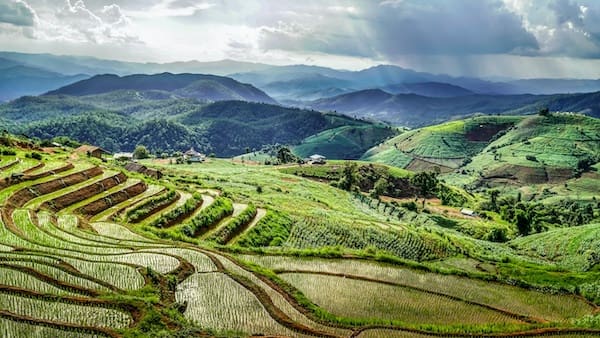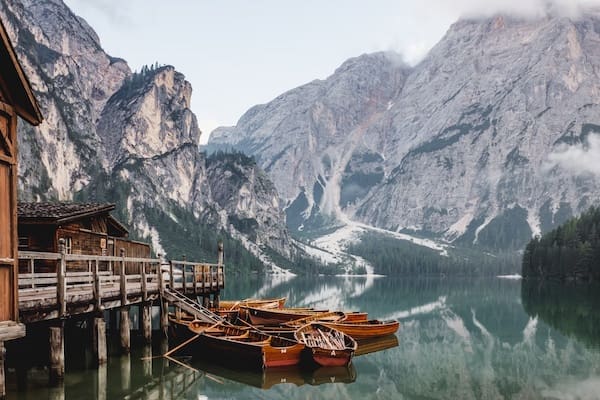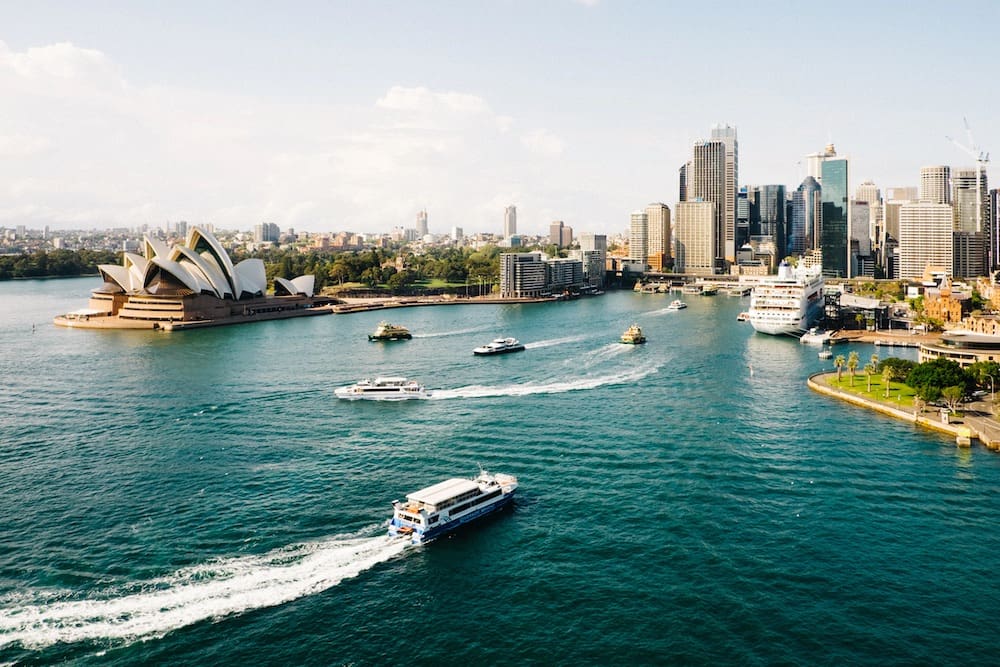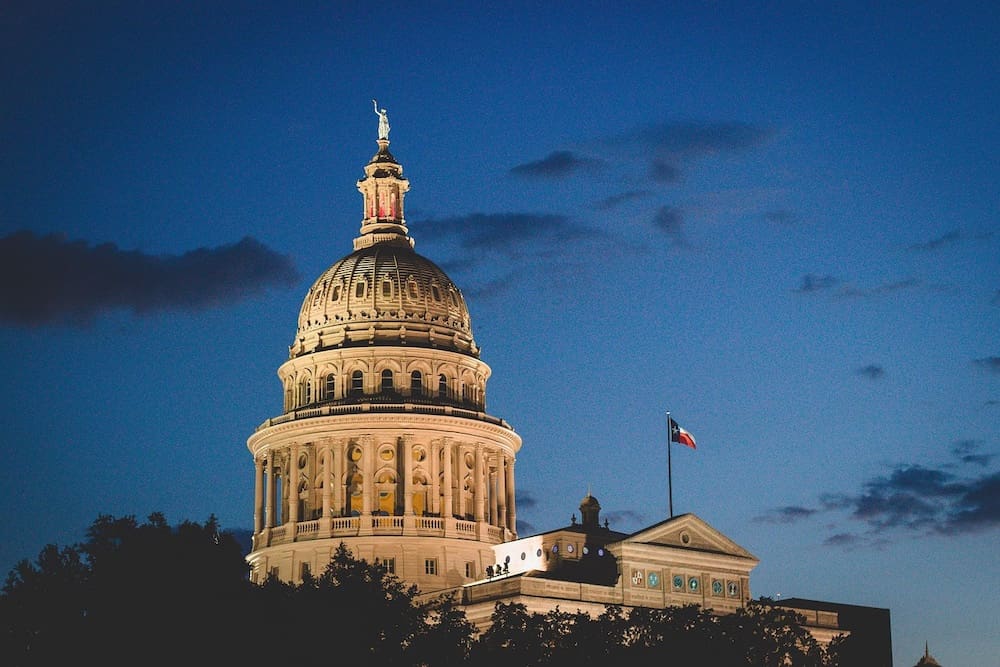Traveling is a wonderful way to gain new experiences, explore unique places, and immerse yourself in different cultures to broaden your horizons.
However, we also know that travel and tourism contribute significantly to climate change. Tourism impacts the socio-economic landscape of a place and alters the natural flora and fauna, causing pollution and gravely affecting the environment. Today, with more and more people becoming aware of the urgency of climate change, the concept of sustainable travel has also become increasingly popular.
Studies have shown that 81% of global travelers today place more importance on sustainable travel.
So, if you, too, love traveling but want to reduce the negative impact it has on the environment, we’ve curated a helpful guide on sustainable travel tips to help you do your bit for the environment!

1. Do Your Research on “Exotic” Foods And Delicacies
People often get taken in by exotic local delicacies and wish to try them out without knowing their impact on the ecosystem.
For example, shark fin soup is considered a traditional Chinese delicacy. While it didn’t impact the environment during the reign of Emperor Taizu (960–1279), it is now a leading cause of the decline in the shark population.
You may think that a single bowl of soup won’t have such drastic consequences, but with 100 million sharks being killed each year, every little bit counts.
Sea turtles are also endangered species, so dishes containing sea turtles must be avoided at all costs.
Endangered species and extinction is a very real concern and can severely upend the balance of a region’s ecosystem. It’s thus crucial to research local delicacies and their impact on the environment before you head out for a decadent meal.
2. Don’t Feed Wild Animals
It may be tempting, even encouraged, to feel wild animals or chum the water to lure more creatures. But, this can create an unhealthy dependency where animals may expect humans to provide food. They may also adapt accordingly, which can cause safety concerns for travelers, disrupt the ecosystem, and generally threaten the local wildlife.
In fact, even unconscious feeding such as throwing food waste overboard can be problematic. This was brought to light when scientists considered the scavenging tendencies of sharks to be one of the causes of the serial shark attacks at Cid Harbor in Australia.
3. Don’t Buy Animal Souvenirs
Souvenirs that use animal parts, leather, or ivory encourage hunting and poaching of animals that may already be endangered or at risk of extinction.
Demand for animal souvenirs translates to the creatures in question becoming targets of mass killings.
As beautiful as these souvenirs may be, you can do without them. Buying souvenirs is a fun aspect of traveling, just make sure you’re not inadvertently harming wildlife in the process.
4. Ask Questions At Animal Attractions
When visiting places where animals are the main attraction, whether it’s to see them or interact with them, it is important to ask questions.
If you’re on a safari, question how visitors are shown around without intruding or bothering the animals in their natural habitat. At other attractions where animals are domesticated, ask the people running the attractions how animals are treated. Are they well-fed? Properly looked after?
If the answers seem unsatisfactory or suspicious, avoid visiting the attraction or leave if you’re already there. You can also use social media to talk about your experience at a particular place to discourage more people from visiting.
For example, SeaWorld is notorious for its mistreatment of animals and social media has helped spread awareness about it.
5. Try To Travel Locally
You may be tempted to fly across the country for a long weekend or visit a different continent for a short trip. This seemingly fun and spontaneous plan, however, comes at a high cost to the environment.
Try to travel locally as much as possible — there’s always something new to discover around you. If you do decide to visit somewhere further away, try to have a longer trip so you can make the most of it and it’s worth the emissions.
6. Opt For Reusable Or Ecofriendly Travel Products
When preparing for a trip, the use-and-throw mentality tends to take over. But, this generates a lot of unnecessary waste.
If you’re traveling and need certain products that you may have to dispose of, make sure they’re biodegradable and eco-friendly. It’s better to simply opt for reusable items such as cloth makeup wipes and reusable water bottles to reduce your waste.
7. Avoid Haggling If You Can Afford It
If your country’s currency is stronger than that of your travel destination, be mindful of unnecessarily haggling. While you may be worried about being “fleeced,” the truth is that what you save from haggling with a local vendor will only amount to a few cents. It won’t make much difference to you, but it could mean a great deal to the seller.
That’s not to say that you shouldn’t haggle at all. But, if something seems reasonable, fairly priced, or generally affordable to you, avoid bargaining and haggling to drive the price down further. It will go a long way in helping sustain the local economy.
8. Support Local Stores
If you’re on a trip and need to buy things that are easily available at local markets or stores, don’t buy them from a chain store instead.
Instead of going to a Starbucks, for example, try a local coffee shop, or buy groceries from a local vendor rather than a supermarket.
9. Go Camping (Or Glamping!)
Hotels aren’t usually environmentally friendly. So, if you’re keen on being as sustainable as possible, why not take matters into your own hands?
Camping or glamping allows you to have full control over things that you don’t in a hotel such as water wastage or disposal that can significantly impact your environment.
10. Take Showers Not Baths
While you may be tempted to fill up the tub and have a long soak, keep in mind that this will require around 70 gallons of water.
On the other hand, showers only require around 10 to 25 gallons of water and can help conserve water.

11. Reduce Flying And Fly Non-Stop Whenever Possible
Flights have an extremely high carbon footprint. Try to take trains or buses as much as possible instead.
If you do have to fly, opt for non-stop flights as the maximum amount of carbon emissions from planes happens during takeoff and landing.
12. Use Public Transport Or Cycles
Private transport or booking a cab is comfortable and convenient, but you can also consider alternatives when traveling alone. Either carpool with someone if possible or use local public transport.
Not only will it be cheaper and more sustainable, but it’s also a great way to really immerse yourself in a place. You can also cycle around for shorter distances if it’s a cycle-friendly area.
13. Check Your Accommodation Certifications
You may be tempted to book a chain hotel or an Airbnb, but these may be more focused on increasing profits rather than being more sustainable. Consider alternatives such as homestays or local guest houses over chain hotels.
You can also ensure that your chosen accommodation pays attention to energy efficiency, sustainability, and eco-friendly practices by checking their certifications such as LEED and EarthCheck.
14. Pack Light
Lighter luggage means less fuel, which means that it will lower your emissions if your baggage is lighter. So, packing light will help you reduce your carbon footprint when you travel.
Packing light also makes traveling easier, especially if you’re hitchhiking or traveling on local transport.
15. Return Tourist Information Pamphlets So They Can Be Reused
Whether you’re using a book, pamphlet, or brochure to refer to on your travels, return them to the hotel or tourist information office once you’re done using them.
This ensures that they can be reused by other travelers and reduces waste.
16. Be Mindful Of Local Resources
Holidays and vacations often result in people letting loose and going overboard. You may feel tempted to indulge and pamper yourself, but make sure that this doesn’t negatively impact the environment.
Be mindful of local resources and conserve water, and switch off electronics, chargers, TVs, and lights when not in use. Don’t use the AC unless you really need it, and if you do need to use it, try to keep it at 26℃ or higher to conserve electricity. The lowest you should use the AC is at 24℃.
17. Carry Your Own Water Bottle
Always carry your own water bottle around with you wherever you go. You can request hotels, restaurants, or other people for a refill even if there are no public water coolers around.
It will also reduce your consumption of plastic bottles.
18. Use Coral Friendly Sunscreen
Sunscreen, while necessary for skin health, can be toxic to corals that are already dying at a rapid pace.
To mitigate the damage, use a coral-friendly sunscreen to avoid harming the coral when you swim or dive in water bodies or even wash off after a day out in the sun.
19. Carry A Garbage Bag With You
Carry your own garbage bag when you’re out and about so you don’t have to worry about finding a trash can and contributing to litter.
If you’re feeling up to it, you can even pick up the litter that other less-conscious tourists have left behind. Remember to always “leave a place better than you found it.”
20. Be Aware Of The Negative Impact Of Overtourism
Overtourism can be extremely detrimental to any place. Too many tourists in an area can significantly damage the natural environment and result in the overuse of resources, leading to scarcity for the local people.
Overtourism may also cause a decline in the area’s natural culture. Hawaii is a prime example of a travel destination that is burdened by over-tourism.
Conclusion
The tourism industry needs to undergo a major transformation in order to survive and thrive. Until that happens, it is up to us to make conscious efforts toward sustainable travel experiences that reduce our impact on the environment.
While small steps like the ones listed here may seem inconsequential, it is these very simple changes that can drive a shift in the industry. Your actions may even encourage the tourism world to inculcate practices that are friendlier to the local environment and its people.





